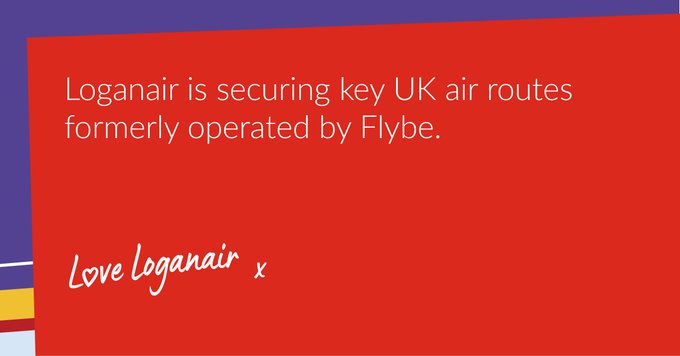On Wednesday, less than two months after the UK government agreed on a rescue deal, Flybe went into administration. A failing business model and the impact of the coronavirus led to the Flybe collapse. Tweeting to customers ‘DO NOT TRAVEL TO THE AIRPORT unless you have arranged a flight with an alternative airline’ Flybe publicised its intention to cease operating. With passenger plans and an estimated 2’400 job in jeopardy, the government quickly began looking for alternative carriers. Airport operators, as well as MPs like Arlene Foster, made it clear that UK regions require connectivity and that this connectivity is deserving of government support. Foster tweeted:
“Have been speaking with Economy Minister @DianeDoddsMLA and HMG regarding impact of Flybe on local workforce and travellers as well as importance of key routes for air connectivity in Northern Ireland. Big test for HMG commitment to UK regional connectivity.”
In recent months, the embattled airline and its investors saw “promising signs of a turnaround” but the impact of the coronavirus on bookings appear to have been a step too far for investors who were no longer willing to prop it up further.
The airline’s demise threatens the future of regional airports, some of which were solely reliant on Flybe. What’s more, a whole host of businesses serving staff and passengers may also fall into a sharp decline. Having promised to ‘level up’ lesser-served regions during the election campaign, the government immediately announced its intention to support regional airports.
In Parliament, Aviation Minister Kelly Tolhurst told MPs that the government recognises “the impact that this will have on UK airports particularly those which have large-scale Flybe operations.” She added that the government would work “with industry to identify opportunities to fill routes.”
Within less than 24 hours, Loganair announced its plan to operate 16 of Flybe’s regional routes.
Loganair to take over UK internal flight routes after Flybe collapse
Operating for the best of four decades, Flybe served 57 UK and European airports with Exeter serving 14 different destinations, mainly within the UK. Providing convenient regional flights throughout the whole of the UK lay at the heart of Flybe’s operations.
On Twitter, Loganair expressed the company’s “heartfelt sympathy is with Flybe’s dedicated team and their customers with affected travel plans”, adding that “Loganair will step-in to secure 16 key UK air-routes, which are now on sale.”
The Scottish airline also announced it would make available a dedicated job application route for former Flybe staff and prioritise their applications. As part of its plan to take over 16 routes no longer operated by Flybe, Loganair is planning to recruit 100 staff including pilots, crew members, and engineers.
From the middle of March Loganair will run an additional 400 weekly flights from Newcastle, Aberdeen, Inverness, Glasgow, and Edinburgh. Among the routes, services from Belfast to Aberdeen, Manchester to Edinburgh, and Glasgow to Exeter.
Insisting that the Flybe collapse marked a “desperately sad day” especially for staff and customers, Loganair Chief Executive, Jonathan Hinkles, promised that his airline would “step in quickly with a comprehensive plan.” Maintaining internal UK connectivity, keeping customers flying as well as offering staff new opportunities would be Loganair’s main aim.




